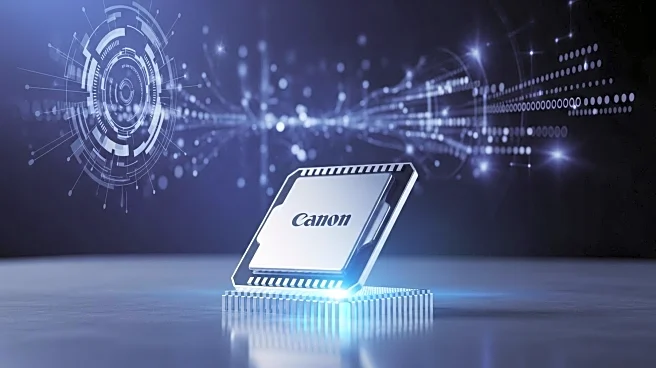What's Happening?
Intel Corporation has announced the completion of its sale of a majority stake in its Altera business to Silver Lake, a private equity firm. The transaction, valued at approximately $3.3 billion, was finalized on September 12, 2025, after meeting all necessary conditions. Intel retains a 49% interest in Altera, while Silver Lake acquired 51%. This move is part of Intel's broader strategy to streamline operations and focus on core businesses amid financial pressures. The sale is expected to impact Intel's third-quarter financials, with Altera's results included until September 11, after which Intel will account for its minority stake under the equity method. Intel has also adjusted its 2025 operating expense target to $16.8 billion, reflecting Altera's deconsolidation.
Why It's Important?
The completion of the Altera stake sale is a significant step in Intel's ongoing restructuring efforts, aimed at stabilizing its operations and addressing financial challenges. The transaction is part of Intel's strategy to refocus on its core semiconductor business while managing losses in its foundry unit, which reported $3.1 billion in second-quarter losses. The U.S. government's conversion of CHIPS Act grants into a $5.7 billion equity stake in Intel further underscores the strategic importance of the company in national interests, providing the government with a 10% ownership stake. This move is expected to bolster Intel's outlook and influence its strategic direction, potentially impacting the semiconductor industry and U.S. technological competitiveness.
What's Next?
Intel's newly appointed CEO, Lip-Bu Tan, is leading a comprehensive restructuring plan, which includes reducing the workforce to 75,000 and establishing a separate board for the foundry unit. The company is actively seeking a major customer for its 14A process by 2026, which could be pivotal in securing future growth and stability. The government investment and restructuring efforts are likely to shape Intel's strategic decisions and competitive positioning in the semiconductor market. Stakeholders, including investors and industry partners, will be closely monitoring Intel's progress and its ability to navigate the challenges posed by intense competition and financial pressures.
Beyond the Headlines
Intel's divestiture of Altera highlights the broader trend of tech companies streamlining operations to focus on core competencies amid evolving market dynamics. The involvement of the U.S. government in Intel's equity underscores the geopolitical significance of semiconductor manufacturing and the strategic importance of maintaining domestic capabilities. This development may influence policy decisions and industry standards, as governments worldwide prioritize technological sovereignty and innovation. Intel's restructuring could also set a precedent for other tech companies facing similar challenges, potentially leading to shifts in industry practices and competitive strategies.










